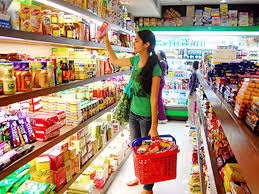A Deep Dive into Retail’s Role in Society:

The social influence of supermarkets in India is a subject that has gained importance, especially with the economic and urban expansion of the country. Indeed, supermarkets are no longer just spaces for shopping; rather, they have become centers of employment, engines of rural support, platforms for women empowerment, and contributors to food security. Whether it is DMART, Reliance Retail, Star Market, or local chains, the social impact of supermarkets in India cannot be overlooked.
Over the past two decades, India’s retail landscape has undergone a revolutionary change. While traditional grocery stores still exist, modern retail—represented through supermarkets—has grown rapidly. With this growth comes responsibility, and large retail chains have increasingly recognized the value of contributing to national social goals. Consequently, the social influence of supermarkets in India has evolved into a significant topic in discussions about development, stability, and public policy.
Brands such as DMART, Reliance Smart, Big Bazaar (before its decline), and Star Bazaar have launched outlets not only in metropolitan cities but also in Tier-2 and even Tier-3 cities. As a result, millions of Indians now have access to better infrastructure, a wider variety of products, and more hygienic shopping environments.
Moreover, the benefits go far beyond mere convenience. With each new store, jobs are created—not only in retail but across the entire value chain. From logistics and warehousing to technology and supply chain management, supermarkets in India exert a broader influence than their physical locations might suggest.
Employment Generation and Digital Technology Skill Development:
One of the most direct ways the social impact of supermarkets in India can be observed is through job creation. In fact, each supermarket outlet typically employs 100–300 people. When you multiply this by thousands of outlets nationwide, it becomes clear that the sector is a massive employer.
Moreover, many of these jobs are entry-level, making them accessible to young people, individuals from economically weaker sections, and those without advanced education. In addition, supermarkets often conduct training programs, helping workers develop skills in customer service, inventory management, and digital tools.
Therefore, the social impact of supermarkets in India includes enabling financial independence, especially for youth and women from marginalized backgrounds. Not only do these jobs provide stable income, but they also come with healthcare benefits and a pathway to middle-class status.
With the adoption of digital payments, loyalty apps, and home delivery services, supermarkets are driving digital inclusion. In particular, consumers—many of whom were new to online transactions—have learned to use UPI, e-wallets, and QR code payments thanks to in-store education and promotional efforts.
Consequently, this is yet another dimension of the social impact of supermarkets in India—the facilitation of digital literacy. By actively introducing and simplifying tech tools for the average shopper, supermarkets are indirectly but significantly contributing to India’s digital revolution.
Empowering Women:
In a country like India, where female workforce participation has historically been low, supermarkets offer safe, inclusive environments that encourage women to work. For instance, chains like Reliance Retail and Star Bazaar actively recruit women and provide on-the-job training.
Furthermore, the social impact of supermarkets in India is especially notable in the context of gender equality. By offering employment opportunities to women—particularly in conservative societies where female employment is often frowned upon—supermarkets are not only challenging cultural norms but also fostering societal change.
As a result, women employed in supermarkets gain not only income but also social capital and decision-making power within their families. Ultimately, this ripple effect contributes significantly to the broader goal of women’s empowerment in India.
Strengthening Rural Economies and Farmer Linkages:
Another crucial aspect of the social impact of supermarkets in India is their connection with rural producers and farmers. Unlike traditional markets that rely heavily on middlemen, supermarkets often procure directly from farmers through partnerships or farmer-producer organizations (FPOs).
As a result, this model ensures fair pricing, timely payments, and better logistical support. For the farmers, it means increased income security and reduced exploitation. For instance, DMart and Reliance Fresh source fresh produce directly from farms and offer predictable purchase contracts.
Therefore, the social impact of supermarkets in India includes uplifting rural livelihoods, reducing wastage in the agricultural supply chain, and encouraging the adoption of sustainable farming practices through education and support.
Consumer Benefits and Food Security:

Indian consumers, too, have benefitted enormously from the supermarket boom. To begin with, affordability, product variety, and hygienic conditions are among the top advantages. More importantly, supermarkets also promote food security by ensuring a steady supply of essential goods, even during crises like the COVID-19 lockdowns.
In this context, the social impact of supermarkets in India includes the democratization of access to quality products. As a result, people living in remote or underdeveloped areas now enjoy the same goods that were previously available only in metro cities. Moreover, bulk purchasing and private-label products make food and household items significantly more affordable.
In addition, with initiatives like loyalty cards, nutritional labeling, and healthy food promotions, supermarkets are even shaping consumer behavior toward healthier lifestyles—thereby adding another layer to their broader social contribution.
Promoting Environmental Sustainability and Social Accountability:
As public awareness around environmental issues grows, the social impact of supermarkets in India increasingly includes green initiatives. In response, many chains are eliminating single-use plastics, encouraging reusable bags, and adopting energy-efficient lighting and refrigeration.
For example, DMart has piloted zero-waste outlets in some cities, while Star Bazaar has implemented rainwater harvesting in select locations. Furthermore, expired but safe-to-consume food is being donated to NGOs and food banks instead of being discarded.
Collectively, these steps signify a shift toward corporate responsibility and sustainability. The social impact of supermarkets in India, therefore, touches not just human lives but also the health of the planet. In addition, big supermarket chains in India are deeply involved in Corporate Social Responsibility (CSR) initiatives. For instance, Reliance Retail runs educational programs, skill-building initiatives, and healthcare camps. Similarly, DMart contributes to causes such as disaster relief, education, and sanitation through the Avenue Foundation.
Clearly, this institutionalized giving back is a significant part of the social impact of supermarkets in India. Through CSR, supermarkets extend their influence beyond commerce into direct community upliftment. As a result, these efforts also build trust and customer loyalty, forming a cycle where both society and business benefit.
Supporting Local Entrepreneurs and Small Businesses:
Most Indian supermarkets, today, allocate shelf space for local brands, SMEs (small and medium enterprises), and regional specialties. As a result, this inclusion helps small businesses gain visibility, compete with large FMCG brands, and scale up production.
Moreover, by acting as a distribution platform, supermarkets are fueling the dreams of local entrepreneurs. Thus, the social impact of supermarkets in India also includes nurturing innovation and entrepreneurship at the grassroots level.
Supermarkets in Crisis: COVID-19 and Natural Disasters:

The Covid-19 epidemic highlighted the playing supermarkets required during the emergency. Between the purchase of nervousness and lockdown, the supermarket ensured that the food supply chains remained functional. He also adopted a fast security protocol for safety of both workers and customers. During floods, cyclones, or other natural disasters, supermarkets often move with help-reducing water, prepared-to-eating food and essential kits. These human activities carry forward the social influence of supermarkets in India, which are columns of support during crises.
The Future of Supermarkets: Driving Social Change in India:

The social impact of supermarkets in India will only deepen in the coming years. With emerging trends like ethical sourcing, AI-driven supply chains, and green building practices gaining momentum, supermarkets will continue to evolve into institutions of social change.
Additionally, brands are also moving toward inclusive hiring, where they employ persons with disabilities and transgender individuals, further enhancing their social contributions. As customer awareness continues to grow, businesses that prioritize social impact will gain a competitive edge.
In conclusion, the social impact of supermarkets in India is vast, multi-layered, and still evolving. From empowering women and supporting farmers to educating consumers and promoting sustainability, supermarkets have become key players in shaping modern Indian society.
While challenges remain, the overall direction is clear—supermarkets are not just commercial hubs but also catalysts for inclusive development. As India strides forward toward becoming a $5 trillion economy, the role of socially responsible retail must not be overlooked.
Ultimately, by understanding and enhancing the social impact of supermarkets in India, we not only improve lives but also build a more equitable, resilient, and sustainable nation.
